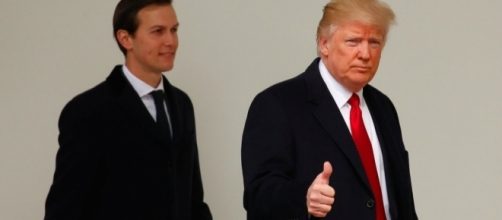When the Deputy Attorney General for the Department of Justice, Rod Rosenstein named Robert Mueller as the special prosecutor to continue the investigation on the Trump administration, it was reported that the White House had been notified about 30 minutes before the news began to circulate, according to VOA News. Then, President Trump released a statement where he welcomed the investigation, which fell in line with other statements made by his press secretaries that they wanted to get to the bottom of it. But, it was also reported that President Trump was infuriated by the news.
Since Robert Mueller became a part of the drama -- at least in name, more reports have come out that seem to give credibility to the view that resulted in the Special Prosecutor, that Trump was trying to obstruct justice.
White House exploiting ethics rules to stall investigation
On May 19, it was reported that two people who are familiar with the events unfolding at the White House revealed that the administration was trying to find some way to undermine Robert Mueller's investigation. According to those anonymous sources, they started looking at an obscure ethics rule from the Code of Federal Regulations within hours of the naming of the special prosecutor: a rule which prevents newly hired government lawyers from conducting investigations for up to a year.
Of the many executive orders that the President signed at the beginning of the year, one of them reportedly extends that period for up to two years.
It's also been reported that they could simply use the ethics rules to create doubt around the special prosecutor, giving the appearance that he is not able to do his job fairly. It's likely that they would be able to do this through press briefings and statements. This is likely as the administration -- and Trump himself -- have had no problems from the campaign trail and into the Oval Office in creating doubt, or slamming their opposition in many different ways. Because Mueller was hired by the DOJ, it also still leaves the open chance that he could simply be fired by the President, which would only be severely scrutinized in Washington without any signs that the administration would pay actual consequences.
Devil in the details
There is no doubt that the Trump administration and many of its aides are very well connected. When Mueller was named, it was reported that he resigned his role as a partner with his firm WilmerHale. It so happens that his former firm represents Ivanka Trump, her husband Jared Kushner and Trump's former campaign manager Paul Manafort, who is also targeted in the investigation. In other reports, it's said that officials who are familiar with some of these ethics rules say that someone like Mueller would have to recuse himself from an investigation when entering federal employment, especially if the decisions they make will affect individuals who were represented by their firm.
Former White House ethics lawyer for President George W. Bush and University of Law professor Richard Painter also pointed to a "one-year cooling" period.
He also points to the Justice Department's ability to waive that requirement and yet, he said that Mueller would have to try and avoid direct contact with his former clients. At the same time -- similar to a DOJ waiver -- the co-managing director for WilmerHale, Robert Novick, said that the former FBI Director did not play any part in the work the firm did for Trump's aides which would give Mueller free reign. However, if the DOJ doesn't grant a waiver, then it could restrict the probe's scope. Painter also expressed concern that the White House or Attorney General Jeff Sessions could interfere. But, according to one person who spoke on the condition on anonymity, they've said that it's certain the White House is going to try to taint Mueller's reputation instead.


